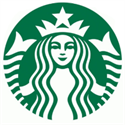CORPORATE ACTION: Coca-Cola
Coca-Cola UK Presents List Of Features Of Ideal Deposit Return Scheme
 Coca-Cola European Partners has revealed the characteristics of what the company believes is a deposit return scheme that is workable and likely to succeed in the UK. According to the company, a DRS for recycling cans and bottles should be “easy for public to recycle and no penalty for doing the right thing and should have “good financial management and fraud control.” Also, the company said a good DRS should have a “common approach covering the whole of Great Britain” and should be managed by a “not-for-profit management company.”[Image Credit: © Coca-Cola European Partners]
Coca-Cola European Partners has revealed the characteristics of what the company believes is a deposit return scheme that is workable and likely to succeed in the UK. According to the company, a DRS for recycling cans and bottles should be “easy for public to recycle and no penalty for doing the right thing and should have “good financial management and fraud control.” Also, the company said a good DRS should have a “common approach covering the whole of Great Britain” and should be managed by a “not-for-profit management company.”[Image Credit: © Coca-Cola European Partners]
CORPORATE ACTION: Starbucks
Starbucks Says Goodbye To Plastic Straws, Says Hello To Earth-Friendly Lids
 Coffeeshop chain Starbucks has announced plans to stop using plastic straws at its more than 28,000 locations worldwide by 2020. Part of the company’s efforts to reduce waste and protect the environment, the move will also see Starbucks replacing plastic straws with the recyclable lid developed by Emily Alexander, an engineer at the chain’s Global Research and Development. At present, the recyclable lids are used for some drinks, including Draft Nitro and Cold Foam in more than 8,000 locations in the US and Canada. These lids will be used for all iced drinks, the company said, except Frappuccino, which will have a straw made from paper or compostable plastic made from fermented plant starch or other environment-friendly material.
Coffeeshop chain Starbucks has announced plans to stop using plastic straws at its more than 28,000 locations worldwide by 2020. Part of the company’s efforts to reduce waste and protect the environment, the move will also see Starbucks replacing plastic straws with the recyclable lid developed by Emily Alexander, an engineer at the chain’s Global Research and Development. At present, the recyclable lids are used for some drinks, including Draft Nitro and Cold Foam in more than 8,000 locations in the US and Canada. These lids will be used for all iced drinks, the company said, except Frappuccino, which will have a straw made from paper or compostable plastic made from fermented plant starch or other environment-friendly material.
Starbucks Imposes 5p “Latte Levy” On Single-Use Paper Coffee Cups In UK
 Coffeeshop chain Starbucks has started charging customers 5p for single-use paper coffee cups in the UK. Part of the company’s efforts to reduce the use of 2.5 billion disposable cups each year, the “latte levy” was rolled out nationwide after a three-month trial in London. Customers who use reusable mugs receive a 25p discount off any Starbucks drink, while in-store customers encouraged to use ceramic cups instead.
Coffeeshop chain Starbucks has started charging customers 5p for single-use paper coffee cups in the UK. Part of the company’s efforts to reduce the use of 2.5 billion disposable cups each year, the “latte levy” was rolled out nationwide after a three-month trial in London. Customers who use reusable mugs receive a 25p discount off any Starbucks drink, while in-store customers encouraged to use ceramic cups instead.
CORPORATE ACTION: Other
Chicago Restaurant Chain Plans To Stop Using Plastic Straws

Chicago-based restaurant chain operator Lettuce Entertain You Enterprise said it plans to stop using plastic straws by October 1, 2018. With more than 100 local restaurants and bars having committed support for the Shedd Aquarium’s “Shedd the Straw” campaign, the company’s support for the movement could speed up the elimination of plastic straws. Popular among restaurants and similar establishments, plastic straws are not easily recycled and usually end up in the ocean. [Image Credit: © LETTUCE ENTERTAIN YOU ® ENTERPRISES]
Vancouver Retailer Nada Tells Shoppers Bring Their Own Packaging
 Nada, a new retailer in Vancouver, British Columbia, has started selling food products without packaging. Aimed at reducing plastic pollution, the move encourages customers to bring their own clean containers and bags for the food items they buy from the store. Customers can pay for bulk items by weight, while a dishwasher-safe tag will keep a record of the empty container, making the process faster the next time they shop. Nada sells package-free dry food items, bakery products, and toiletries and cleaning supplies.
Nada, a new retailer in Vancouver, British Columbia, has started selling food products without packaging. Aimed at reducing plastic pollution, the move encourages customers to bring their own clean containers and bags for the food items they buy from the store. Customers can pay for bulk items by weight, while a dishwasher-safe tag will keep a record of the empty container, making the process faster the next time they shop. Nada sells package-free dry food items, bakery products, and toiletries and cleaning supplies.
PCC Community Markets Says To Remove Plastics From Delis by 2022
 Food co-op PCC Community Markets has promised to stop using plastics in its delis by 2022. At present, the company uses more than 5 million plastic packaging containers every year. According to PCC, it plans to replace plastic packaging with biodegradable compostable containers. In 2015, the company replaced plastic straws and utensils with compostable alternatives.
Food co-op PCC Community Markets has promised to stop using plastics in its delis by 2022. At present, the company uses more than 5 million plastic packaging containers every year. According to PCC, it plans to replace plastic packaging with biodegradable compostable containers. In 2015, the company replaced plastic straws and utensils with compostable alternatives.
Australian Retailers Broadcast Their Environment-Friendly Credentials
 In Australia, supermarkets are using their environment-friendly efforts as marketing tools. Retailers are also using their “green credentials” to position themselves against their competitors and shield themselves from the bad PR effects of news reports about pollution-related disasters. For example, in April 2018, Woolworths announced it will stop using single-use bags across the country by end of June. Ikea Australia said it will buy back and resell used furniture, a practice it has been doing in other countries. As more companies make environment-friendly claims, they face the risk of consumers becoming skeptical about their corporate social responsibility efforts and, consequently, the brands being damaged.[Image Credit: © Stefan Schweihofer]
In Australia, supermarkets are using their environment-friendly efforts as marketing tools. Retailers are also using their “green credentials” to position themselves against their competitors and shield themselves from the bad PR effects of news reports about pollution-related disasters. For example, in April 2018, Woolworths announced it will stop using single-use bags across the country by end of June. Ikea Australia said it will buy back and resell used furniture, a practice it has been doing in other countries. As more companies make environment-friendly claims, they face the risk of consumers becoming skeptical about their corporate social responsibility efforts and, consequently, the brands being damaged.[Image Credit: © Stefan Schweihofer]
Specialty Breads Eyes 50-Percent Cut In Plastics Use By 2020
![]() Specialty Breads, a company that supplies frozen bread and dough to restaurants, hotels, pubs, cafés and caterers, has announced its plan to reduce by 50 percent its use of single-use plastics by 2020. Also, the company said it aims to use recyclable or recycled packaging, use solar cooling to enhance efficiency of refrigerators, provide sales staff with low emission or hybrid cars, and achieve zero-landfill status for its bakery operations.
Specialty Breads, a company that supplies frozen bread and dough to restaurants, hotels, pubs, cafés and caterers, has announced its plan to reduce by 50 percent its use of single-use plastics by 2020. Also, the company said it aims to use recyclable or recycled packaging, use solar cooling to enhance efficiency of refrigerators, provide sales staff with low emission or hybrid cars, and achieve zero-landfill status for its bakery operations.
Bacardi Mixes With Lonely Whale To End Use of Single-Use Plastic Straws by 2020
![]() Liquor brand Bacardi has joined nonprofit group Lonely Whale to stop the use of 1 billion single-use plastic straws by 2020. As part of the company’s efforts to help protect the environment, Bacardi has committed to review its global supply chain to remove non-essential and non-recyclable single-use plastic waste. Also, the company will encourage consumers to join its #TheFutureDoesntSuck campaign.
Liquor brand Bacardi has joined nonprofit group Lonely Whale to stop the use of 1 billion single-use plastic straws by 2020. As part of the company’s efforts to help protect the environment, Bacardi has committed to review its global supply chain to remove non-essential and non-recyclable single-use plastic waste. Also, the company will encourage consumers to join its #TheFutureDoesntSuck campaign.
Morrisons Rewards Shoppers For Returning Plastic Bottles
.png&width=125&height=64) Supermarket company Morrisons has started a deposit return schemes by placing vending machines for plastic bottles at its stores in North Yorkshire and Scotland. Part of the company’s efforts to promote recycling of plastics, the program will reward shoppers for every plastic bottle they return with coupon for 100 Morrisons More points or let customers donate 10p to charity organization CLIC Sargent, which helps children and young people who have cancer.
Supermarket company Morrisons has started a deposit return schemes by placing vending machines for plastic bottles at its stores in North Yorkshire and Scotland. Part of the company’s efforts to promote recycling of plastics, the program will reward shoppers for every plastic bottle they return with coupon for 100 Morrisons More points or let customers donate 10p to charity organization CLIC Sargent, which helps children and young people who have cancer.
CAMPAIGNS, COMMITMENTS & NGOs
Companies, Cities Announce Anti-Plastic Straws Plans And Policies
 Several companies have announced their plans to stop using plastic straws, while a number of towns and cities have revealed proposals to ban single-use plastics and fine firms and organizations that will not comply. Starbucks said it plans to remove all plastic straws from its stores by 2020 and replace them with recyclable plastic lids for cold beverages. Starting September 1, 2018, plastic straws would only be available by request at its hotels, Hyatt said. For its part, Hilton Hotels said it plans to remove plastic straws from 650 locations in 2018.
Several companies have announced their plans to stop using plastic straws, while a number of towns and cities have revealed proposals to ban single-use plastics and fine firms and organizations that will not comply. Starbucks said it plans to remove all plastic straws from its stores by 2020 and replace them with recyclable plastic lids for cold beverages. Starting September 1, 2018, plastic straws would only be available by request at its hotels, Hyatt said. For its part, Hilton Hotels said it plans to remove plastic straws from 650 locations in 2018.
POLICY, REGULATION & LEGAL
International Companies Urge India’s Maharashtra State To Ease Plastic Ban
 Multinational corporations, including Amazon and H&M, are reportedly urging the state of Maharashtra in India to relax its recently approved ban on single-use plastic. Coming after Indian Prime Minister Narendra Modi’s campaign for an end to the use of single-use plastic in the country by 2022, the state’s move is expected to raise operating costs for companies. Retailers and beverage manufactures are among companies that use plastic packaging. Business groups, including the Federation of Indian Chambers of Commerce and Industry, have called on the government to soften its anti-plastic policies.
Multinational corporations, including Amazon and H&M, are reportedly urging the state of Maharashtra in India to relax its recently approved ban on single-use plastic. Coming after Indian Prime Minister Narendra Modi’s campaign for an end to the use of single-use plastic in the country by 2022, the state’s move is expected to raise operating costs for companies. Retailers and beverage manufactures are among companies that use plastic packaging. Business groups, including the Federation of Indian Chambers of Commerce and Industry, have called on the government to soften its anti-plastic policies.
OTHER NEWS
Cut Back On Plastic Packaging, Leading Manufacturers Hear From As You Sow
 As You Sow, a nonprofit group representing 25 investment companies managing more than $1 trillion in assets, has called on Nestle SA, PepsiCo Inc., Procter & Gamble Co., and Unilever NV, to reduce their use of plastic in packaging of their products. Signed by investment managers, including Hermes Investment Management and Impax Asset Management, the initiative calls plastic packaging damaging to the environment. Companies should reveal their annual use of plastic packaging, establish goals for reducing plastic packaging, and exert efforts to recycle plastic packaging, the group said.
As You Sow, a nonprofit group representing 25 investment companies managing more than $1 trillion in assets, has called on Nestle SA, PepsiCo Inc., Procter & Gamble Co., and Unilever NV, to reduce their use of plastic in packaging of their products. Signed by investment managers, including Hermes Investment Management and Impax Asset Management, the initiative calls plastic packaging damaging to the environment. Companies should reveal their annual use of plastic packaging, establish goals for reducing plastic packaging, and exert efforts to recycle plastic packaging, the group said.

